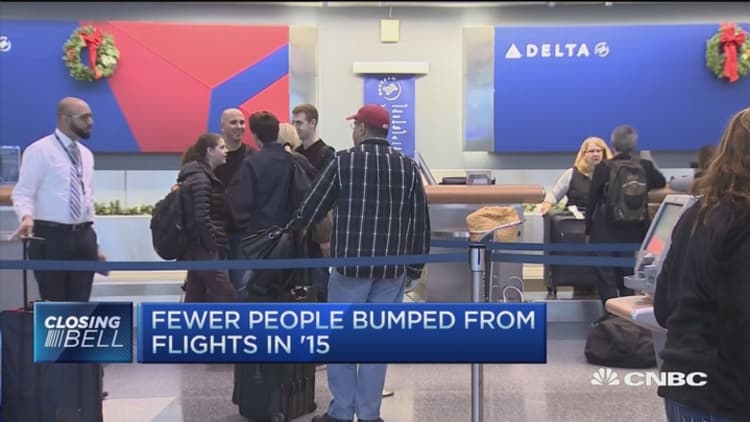Australia's Qantas Airways on Tuesday posted a record first-half profit as the lower oil price shrank its biggest single overhead, and wooed investors with a second straight A$500 million ($361 million) share buy-back.
The profit builds on a turnaround under Chief Executive Officer Alan Joyce, who only last year returned the so-called Flying Kangaroo to profitability as he cut costs including 4,500 jobs, limited discounts and overhauled the frequent flyer program.
Investors however fretted that it appeared to rely too heavily on a one-fifth decline in fuel costs. A spike in the oil price overnight sent the airline's shares down 5 percent in a flat market.
"There's nothing in the result that worries too much, but there's a bit of risk on the oil price going up. People are taking a bit of risk off the table," said Rohan Walsh, investment manager at Karara Capital.
Qantas said pre-tax profit, its most closely watched measure, was A$921 million for the six months to Dec. 31, more than double its A$367 million result the previous first half. It added that it would stick to its tactic of buying back shares as an alternative to paying an interim dividend.
Joyce downplayed the benefits of cheap oil and insisted the turnaround was the result of "good management, not good luck".
"Not every airline is benefiting from the low fuel price to the same extent as Qantas," he told reporters, referring to his company's hedging strategy which limits its exposure to oil price rises.

Qantas had posted higher profits than regional full-service rivals Singapore Airlines and Air New Zealand, he added.
Interim pre-tax profit for Qantas International more than quadrupled to A$270 million from A$59 million, its best result since being reported separately four years ago, as a lower Australian dollar encouraged more inbound tourism, especially from China.
The domestic unit, still the biggest earner for Qantas, grew pre-tax profit 70 percent as the company continued to resist heavy discounts to take market share from local rivals like Virgin Australia.
Joyce said the company planned to offer in-flight wireless internet on domestic flights from 2017 and on international flights after that. It also planned to hire 170 pilots by 2019 to cope with rising capacity.
Qantas said it would offer no profit guidance, "having regard to industry and economic dynamics".


